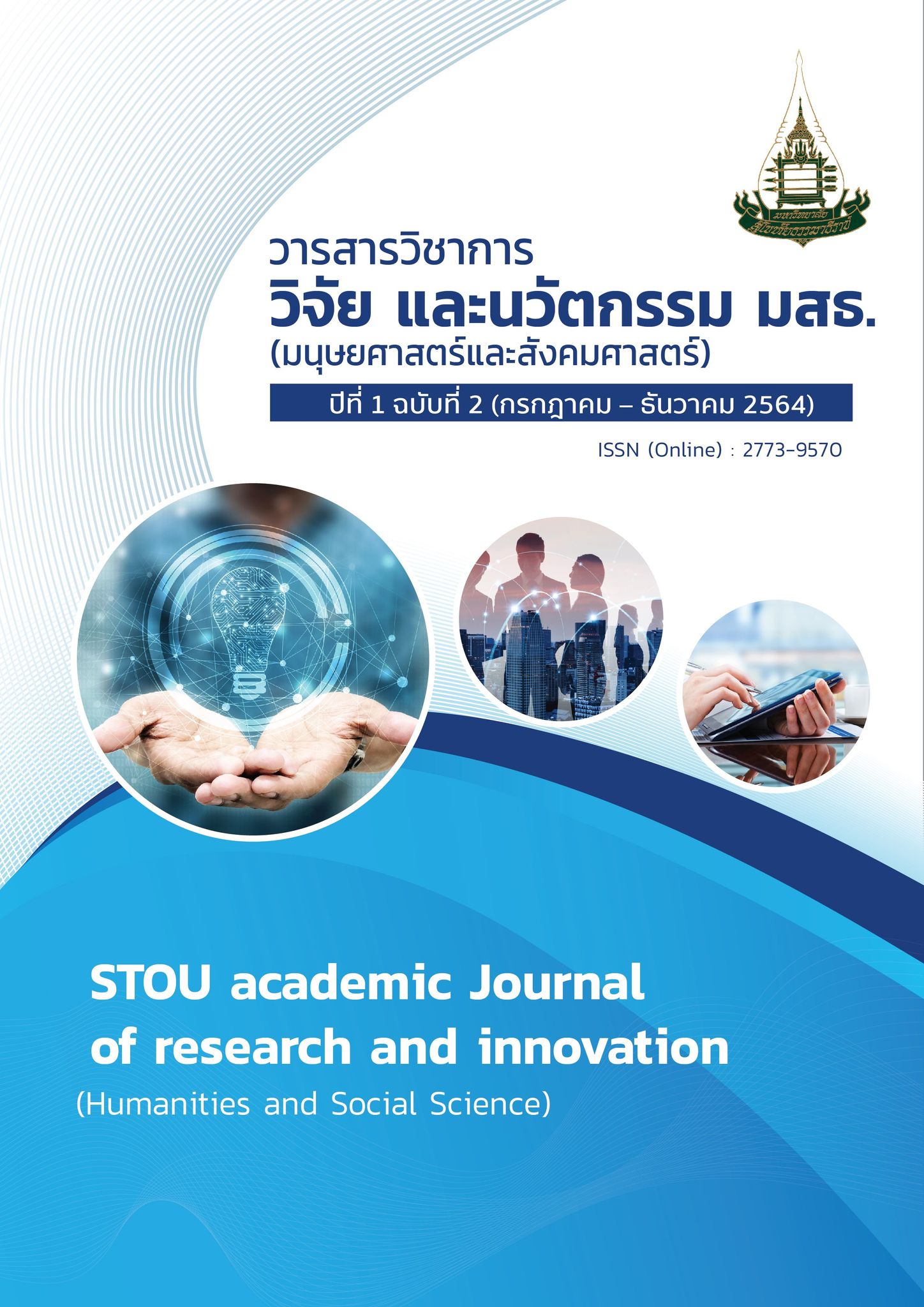Buddhism and Human Development
Keywords:
Human Development, Buddha-dhamma, Buddhist StrategiesAbstract
This article aimed to convey the knowledge about human development from Pitaka, the Holy Pali Canon of Buddhism, particularly from Suttantapitaka, one of the Tipitaka, to find out what Dhamma topic, the Buddha’s teachings, is the most appropriate for human development based on the research entitled: Buddha-dhamma for Administrators conducted by Sman Ngamsnit in 2020 by documentary research. Findings were that main Tipitaka Pali Canon, volume 20 to volume 25, there are 21 Dhamma topics that are most suitable for public and private organization administration. In Tipitaka volume 25 in which Suttanta Pitaka volume 17 is, there is Dhamma principle for human development, called Mangalasutta, blessings. This principle is considered by Buddhist academicians the human development strategies. In this Mangalasutta, Buddha had laid down the methods or strategies for human development from the very basic to the highest level, consisting of the thirty-eight strategies with blessings as the outcomes. When one practices along these strategies from very basic to the highest level, one will have a good life, eliminate sufferings, gain liberation, and become the full developed, the enlightened one.
References
Austin, J. (1955). The Province of Jurisprudence Determined. London: Weidenfeld and Nicolson.
Academic Document Committee. (2538). Mahamakutrajavidhayalaya, Buddhasasanasupasita, Book 1, Bangkok: Mahamakut Press.
Buddhadasa Bhikkhu, Handbook for Mankind. (2002). Bangkok: Dhammasapa Press, 1/ 4-5 Borom Racha Chonnani Rd, Thaviwatthana. Nakornpatom Province.
Hart, H.L.A. (1994). Concept of Law. Oxford: Clarendon Press.
H.E. Lyonchen Dasho Tshering Tobgay. (2019). Honorbale Prime Minister of the Kingdom of Bhutan “Buddhist Contribution for Human Development, The Keynote Speech, The 15th United Nations Day of Vesak Conference 2018, 20th May 2019, Mahachulalongkornrajavidhayalaya University, Thailand.
Ngamsnit, S. (2550). Chanting for Grace and Blessing. Bangkok: Mahachulalongkornrajavidhayala University Press.
Phradhammapidok (P.A.Payuto). (2538). Dictionary of Buddhism. Bangkok: Mahachula Press.
Pitaka,Thai, Mahachulalongkornrajavidhayalaya University, Volume 20 to 25, Bangkok, Mahachulalongkornrajavidhaya University Press.
Ven Prof. Le Manh That, Ven. Dr. Thich Nhat Tu. (2007). Buddhist Contribution to Good Governance and Development: A Collection of Essays by Vietnamese Participants Contributed to the International Conference on the UN Day of Vesak, Bangkok 25-29 May 2007, Vietnam Buddhist University Press.





